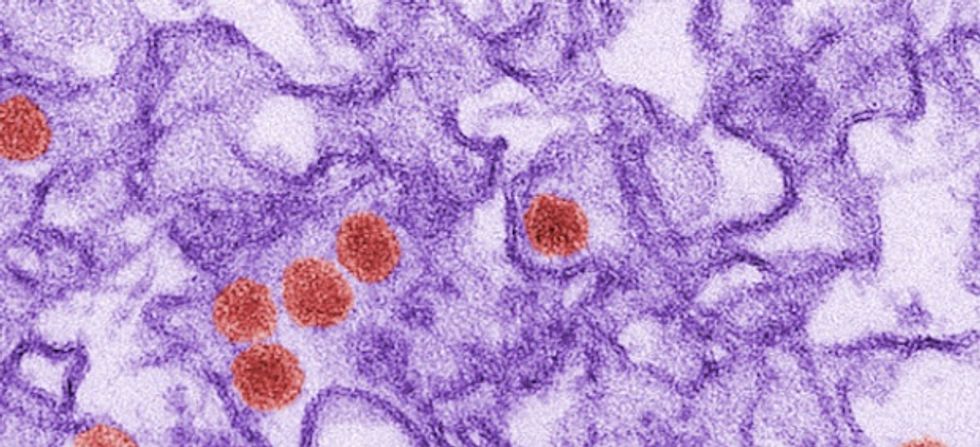
Image source: CDC.gov

Doctors and public health officials in America are considering taking action to protect the country's blood supply from the Zika virus.

While Zika virus is typically transmitted to humans by mosquitos, we know now it can also move from person to person via blood transfusions, saliva and unprotected sex.
In terms of the nation's blood supply, at least one large blood bank network is asking people who have visited regions where Zika is found to wait 28 days after returning home before donating blood. The four-week delay covers the typical incubation period for the virus.
CBS-2 in Chicago reports the Heartland Blood Centers recently announced the restriction to protect the blood they provide to more than 70 hospitals in Chicago and surrounding communities.
Tammy Winchester, a senior blood consultant for Heartland, told CBS-2 she had rejected about 20 donors who had recently visited countries where Zika had taken hold.
The problem for blood banks is compounded by the fact that winter months are typically when blood donors are in short supply due to factors like the weather and flu season.
We asked internal medicine specialist Dr. Jorge Rodriguez if Americans should be concerned about the safety of our blood supply as it relates to the Zika virus. Rodriguez delivered a simple, one-word response: "Yes."
Dr. Rodriguez explained the virus and the problems associated with it on a recent Blaze Radio broadcast:

As of Thursday, the Centers for Disease Control (CDC) had not commented on the virus' threat to the nation's blood supply. However, the agency has warned others about the risk of transmission via unprotected sex, telling men who have visited an area with Zika, and have a pregnant partner, "abstain from sex or use condoms for the duration of the pregnancy."
Additionally, the Washington Post reported on Thursday, at least two pregnant women who contracted Zika while visiting the regions where it is transmitted by mosquitos, suffered miscarriages. The virus was found in the women's placentas.
The virus, typically seen in Africa, South America and Southeast Asia, has now popped up in the United States with confirmed cases in 14 states.
TheBlaze reached out to the CDC for comments on the safety of the blood supply. We were directed to the Food and Drug Administration (FDA) for guidance on controls or directives on how blood is collected and distributed.
A representative from the FDA sent the following statement to TheBlaze: "As the agency works to expedite the blood donor deferral guidance for immediate implementation, we are working to ensure that it is scientifically sound, comprehensive, and legally supported by our regulations. It is essential that the FDA take these important precautions to maintain the safety of the U.S. blood supply. In the meantime, the FDA fully supports the blood banking industry’s voluntary recommendations that potential blood donors be deferred for 28 days after returning from travel to areas where Zika virus is circulating."
Listen to Dr. Jorge explain the Zika virus' threat to our blood supply.
Watch the CBS-2 coverage of the restrictions on blood donations from people exposed to Zika:
Care to know more about Zika? The CDC has prepared a handy little video titled "Zika Virus 101":
Follow the author of this story on Twitter and Facebook: